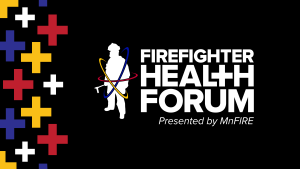February is American Heart Month, and we’re marking the occasion by highlighting the importance of cardiovascular health and spreading awareness for the unique cardiac risks facing Minnesota’s firefighters.
Heart disease is a leading cause of death in the U.S., but did you know it’s also the number-one killer of firefighters nationwide? More than 12% of all firefighters will develop heart disease at some point in their lives. General risk factors for heart disease include smoking, high blood pressure, high cholesterol, age, gender and family health history – but firefighters are at an even greater risk for cardiac issues due to the following occupational risk factors:
1. High physical exertion
Most people who have heart disease don’t experience the levels of exertion that firefighters face daily. Firefighters experience sharp bouts of intense physical activity on a regular basis, and when the heart has to work harder and there’s plaque obstructing the arteries, heart attacks occur.
2. Chemical hazards
While on the job, firefighters encounter a variety of chemical hazards, including carbon monoxide, hydrogen sulfide, fine particulates and more that can lead to cardiac problems. Even though firefighters use self-contained breathing apparatuses, high levels of exposure to these chemical hazards demand more oxygen from the body.
3. Environmental issues
During firefighting activities, a firefighter’s heart rate is elevated, there’s extreme heat, adrenaline is pumping, they’re potentially working overtime and they’re at risk for secondhand smoke. These environmental factors and more make the normal risk for heart disease we see in the general population even higher for firefighters.
Firefighters are far more likely to die on the job from a heart attack than an objective hazard of firefighting such as a building collapse. Firefighters can reduce these risks and improve their health on the job and at home by embracing the pillars of a healthy lifestyle:
- Healthy diet
- Exercise
- Sleep
- Stress management
- Healthy relationships
- Avoiding substance abuse
To learn more about firefighters’ higher risks for cardiovascular disease – and what can be done to help prevent it – consider enrolling in our cardiac deep-dive class. The two-hour class is free until June 2021 and educates firefighters on heightened risk factors, the types of cardiovascular diseases that most commonly impact firefighters and prevention strategies to help firefighters lessen their risk. Register here.








